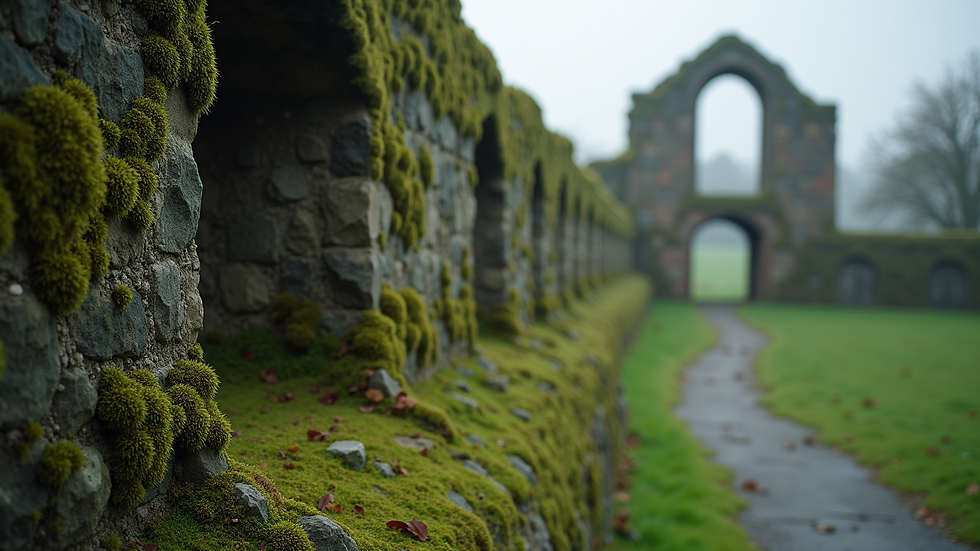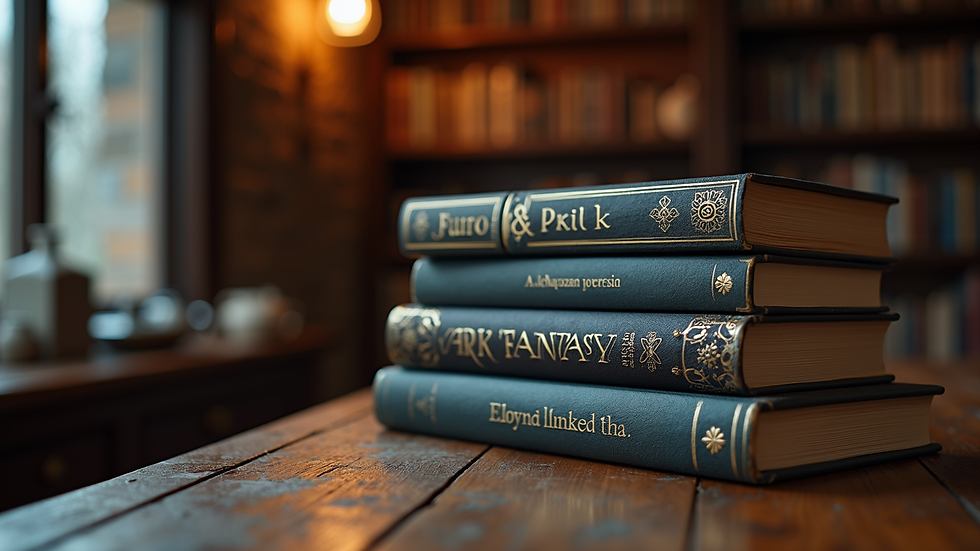Exploring the Unique Traits of Dark Fantasy Writing
- Michaela Riley
- Aug 1, 2025
- 3 min read
Dark fantasy is a captivating genre that blends the mystical elements of traditional fantasy with the eerie, often unsettling tones of horror. It invites readers into worlds where magic and darkness coexist, creating stories that are rich in atmosphere and complex in theme. This genre challenges the boundaries of good and evil, often presenting morally ambiguous characters and grim settings that provoke thought and evoke strong emotions.
The Essence of Dark Fantasy: What Sets It Apart
Dark fantasy distinguishes itself from other fantasy subgenres through its tone and themes. Unlike high fantasy, which often features clear-cut heroes and villains, dark fantasy thrives on ambiguity. The settings are usually shadowy and foreboding, filled with creatures and forces that are both magical and menacing.
Key traits of dark fantasy include:
Moral Complexity: Characters often face difficult choices with no clear right or wrong answers.
Atmospheric Settings: The environment plays a crucial role, often depicted as gloomy, decayed, or haunted.
Supernatural Elements: Magic and mythical creatures are present but are frequently twisted or corrupted.
Psychological Depth: Stories explore fear, despair, and the darker aspects of the human psyche.
These elements combine to create narratives that are immersive and thought-provoking, appealing to readers who enjoy stories that challenge their perceptions.

How Dark Fantasy Shapes Its Characters and Worlds
In dark fantasy, characters are rarely purely heroic or villainous. Instead, they embody shades of gray, reflecting the complexity of real human nature. Protagonists might struggle with inner demons or external curses, while antagonists may have tragic backstories that elicit sympathy.
World-building in dark fantasy is equally intricate. The settings are often:
Gothic and Decayed: Castles, ruins, and ancient cities with a sense of history and doom.
Magical but Dangerous: Environments where magic is unpredictable or corrupting.
Haunted by the Past: Legends and curses that influence the present.
This approach to characters and settings allows writers to explore themes like redemption, corruption, and the consequences of power in a nuanced way.

What Books Are Considered Dark Fantasy?
Several books have become iconic within the dark fantasy genre, offering excellent examples of its unique traits. Some notable titles include:
"The Black Company" by Glen Cook - A gritty tale of mercenaries caught in a world of dark magic and political intrigue.
"The Dark Tower" series by Stephen King - Blends fantasy, horror, and western elements in a bleak, post-apocalyptic world.
"The First Law" trilogy by Joe Abercrombie - Known for its morally ambiguous characters and brutal realism.
"The Broken Empire" series by Mark Lawrence - Features a ruthless anti-hero navigating a dark, violent world.
"The Witcher" series by Andrzej Sapkowski - Combines folklore, magic, and complex characters in a morally gray universe.
These books showcase how dark fantasy can vary in style and focus but consistently deliver stories that are intense, immersive, and emotionally resonant.

Writing Tips for Aspiring Dark Fantasy Authors
For those interested in crafting their own dark fantasy stories, here are some practical recommendations:
Develop Complex Characters: Avoid stereotypes. Give your characters conflicting motivations and flaws.
Create a Vivid Atmosphere: Use descriptive language to build a world that feels alive and ominous.
Balance Magic and Horror: Ensure supernatural elements enhance the story’s tension without overwhelming it.
Explore Themes Deeply: Address topics like morality, fear, and power with nuance.
Use Symbolism and Metaphor: These can add layers of meaning and enrich the narrative.
Additionally, reading works by a seasoned dark fantasy author can provide valuable insights into the craft and inspire your own writing journey.
Embracing the Shadows: The Lasting Appeal of Dark Fantasy
Dark fantasy continues to captivate readers because it offers more than just escapism. It reflects the complexities of the human experience through fantastical yet relatable stories. The genre’s willingness to explore uncomfortable truths and moral ambiguity resonates deeply, making it a powerful form of storytelling.
Whether you are a reader seeking thrilling narratives or a writer eager to explore the darker corners of imagination, dark fantasy provides a rich landscape to discover and create. Its unique blend of magic, horror, and psychological depth ensures that it remains a compelling and evolving genre in the world of literature.




